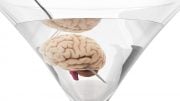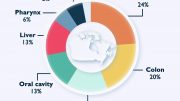
A study from the University of Otago in New Zealand suggests that significant changes in high school students’ social habits, such as increased online interactions, may be contributing to a dramatic decline in youth alcohol consumption over the last 20 years. Researchers found that present-day teens view alcohol as a high-risk activity with few benefits, regard non-drinking as more socially acceptable, and see alcohol as a potential impediment to their personal ambitions, a stark contrast to their peers from two decades ago who perceived alcohol as an integral part of their social hierarchy.
Striking differences in the way high school students socialize could be contributing to the marked decrease in underage drinking over the past two decades, according to a study conducted by the University of Otago, New Zealand.
Dr. Jude Ball, a public health researcher, analyzed and compared the perspectives towards alcohol consumption among high school students from 1999-2001 to those in 2022.
Dr. Ball and colleagues Dr. Michaela Pettie and Loleseti Poasa interviewed 64 students aged between 14 and 17 at a co-ed school in Wellington in 2022, and compared their views to 41 Christchurch students aged 14-17 who took part in a 1999-2001 study, the Adolescent Friendships and Lifestyles Project.
Their findings were recently published in the Asia Pacific journal, Drug and Alcohol Review.
Dr. Ball says more than half of those who were in high school 20 years ago were regularly drinking and going to parties by the time they were in Year 10. By Year 12, all had at least some experience of using alcohol with their peers.

Dr. Jude Ball. Credit: University of Otago
“The majority had been drunk at least once or twice and many drank to intoxication on a weekly basis.”
By contrast, only one of the Year 10 students interviewed last year reported drinking alcohol socially.
“Most had never had more than a few sips of alcohol. Even among the students in Years 11 and 12, about three-quarters were abstinent or drank moderately on rare occasions, often with family, rather than with friends.”
She says the reasons behind the change in attitudes are complex, but it seems social media and spending time online are replacing the drinking and partying of teens 20 years ago.
“Parties used to enable young people to expand their social circle, meet potential romantic partners, or take an existing friendship to a romantic or sexual level. Now adolescents can expand their social circle, meet potential romantic partners, and try on a more flirtatious and confident persona – all without leaving the house.”
Dr. Ball says not drinking is now far more socially acceptable among teens than it used to be.
“Twenty years ago, Year 10 students described a social hierarchy, with early adopters of alcohol at the top and non-drinking ‘nerds’ at the bottom. By Year 12, drinking was seen as an almost compulsory aspect of teen socializing, particularly for males. In contrast, non-drinking was the norm for many contemporary adolescents. Although alcohol was part of social life for some friend groups, many teens described active social lives that did not involve the use of alcohol or other substances.”
Dr Ball says a greater acceptance of diversity and more respect for individuals making their own personal choices had removed peer pressure to drink alcohol among contemporary teens.
One Year 11 student commented: “It feels like there aren’t (such) strict unwritten rules for being a teenager … maybe it’s because the internet has made liking different things much more prevalent … I think people are just more understanding of the fact that everyone’s different.”
Some contemporary adolescents regarded drinking or a party lifestyle as a risk to their personal ambitions and an unproductive use of time and money.
One student commented: “I’ve got better things to do than party … I’m looking out for my future here. I can’t have this distraction.”
Dr. Ball says there was also a much stronger awareness of alcohol-related risks among the new generation.
“Many mentioned the long-term health risks associated with alcohol, including cancer, liver damage, and the impact of substance use on brain development.”
They were also more likely to worry about the risk of becoming addicted.
“Today’s youth are more likely to regard drinking as a high-risk activity with few benefits, while in the past, not drinking alcohol was socially risky.”
Dr. Ball says it is unclear whether the changes in the attitudes of 14-17-year-olds over the past 20 years reflect a unique generation who will remain ‘dry’ throughout their lives or just one which is delaying alcohol use and will ‘catch up’ with previous generations when they reach early adulthood.
“New Zealand evidence suggests binge drinking remains highly prevalent in early adulthood, and despite declining alcohol use in high school students, binge drinking in older adolescents remains much higher here than in other countries like Australia and the US. Policy changes to reduce alcohol harm among young people is still an important public health priority.”
Reference: “Understanding youth drinking decline: Similarity and change in the function and social meaning of alcohol use (and non-use) in adolescent cohorts 20 years apart” by Jude Ball, Michaela A. Pettie, Loleseti Poasa and Gillian Abel, 24 May 2023, Drug and Alcohol Review.
DOI: 10.1111/dar.13685
The study was funded by the Royal Society Te Apārangi, the Marsden Fund, and the Cancer Society of New Zealand.









Be the first to comment on "Why Are Teenagers Saying No to Alcohol?"